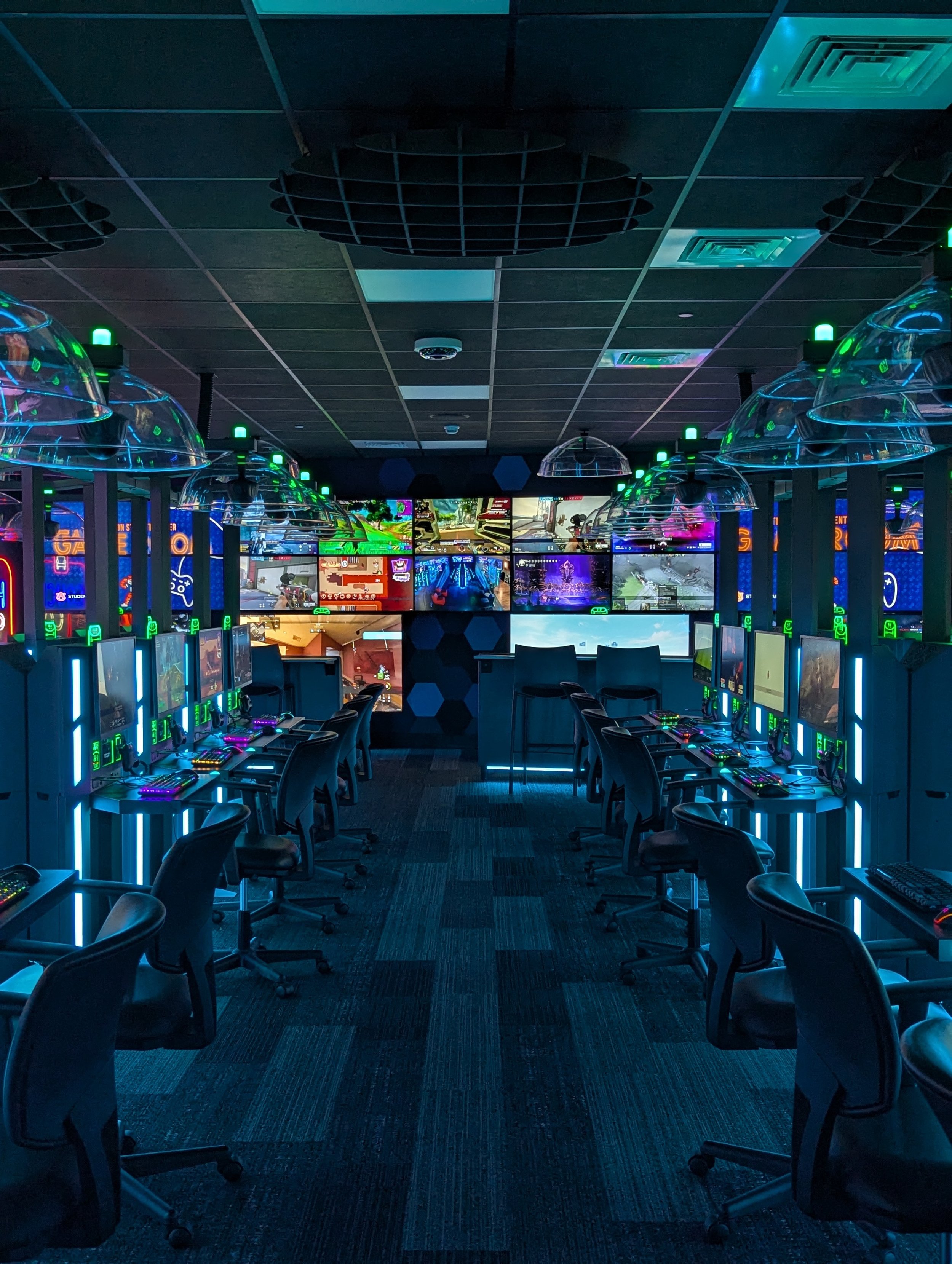
Esports vs Social Gaming
We cater to the full spectrum of gaming experiences, from competitive esports to casual social gaming. Understanding the distinction between these two ends of the gaming world is crucial for creating versatile, engaging, and accessible venues.
What is esports?
Esports represents the competitive, organized side of video gaming. It often involves professional players and teams participating in structured tournaments with significant prizes. Esports is spectator-oriented, drawing large audiences both online and in-person. It requires high-performance equipment and low-latency networks to support fast-paced gameplay.
What is social gaming?
Social gaming, on the other hand, focuses on casual, recreational video gaming. It emphasizes fun, socialization, and community building over intense competition. While it can be competitive, the primary goal is enjoyment. Social gaming accommodates a wide range of skill levels and often involves multiplayer games that encourage interaction.
Gaming is bigger than you think
The gaming industry's growth has been exponential, outpacing traditional entertainment sectors. In 2022, the global games market generated revenues of $184.4 billion, dwarfing the global box office revenue of $25.9 billion. While the average budget for a Hollywood blockbuster in 2022 was around $200 million, top-tier video game productions now regularly exceed this figure. For instance, Grand Theft Auto V had a reported budget of $265 million, and Cyberpunk 2077's budget was estimated at over $190 million.
Gaming viewership has also skyrocketed, with esports events drawing massive online audiences. The 2021 League of Legends World Championship final attracted over 73 million peak concurrent viewers, surpassing the viewership of many traditional sports events.
AP Photo/Louise Delmotte
Why it’s important to gaming venues
The gaming industry has undergone a remarkable transformation, evolving from a niche hobby to a dominant force in entertainment—and it’s here to stay. GameLab allows you to stand at the forefront of this cultural phenomenon.
For gaming venues, these trends present both opportunities and challenges. The demand for high-quality, communal gaming experiences has never been greater. Players accustomed to AAA-quality games at home now expect venues to offer experiences that are equally impressive, if not more so. This necessitates investment in cutting-edge technology and carefully designed spaces that can accommodate both casual social gaming and high-stakes esports events.
Moreover, the rise of gaming as a spectator activity opens new avenues for venues. Beyond just providing play spaces, facilities can now position themselves as viewing hubs for major tournaments, hosting watch parties that rival sports bars in enthusiasm and attendance.
The key to success in this new landscape lies in versatility. Effective gaming venues must cater to a diverse audience, from casual players seeking a social experience to competitive gamers honing their skills. They must be adaptable, and capable of existing as both relaxed social spaces and electric competitive arenas.
By understanding and embracing the full gaming spectrum, GameLab creates inclusive spaces that bring all types of gamers together, fostering a vibrant, diverse gaming community in your venue.




